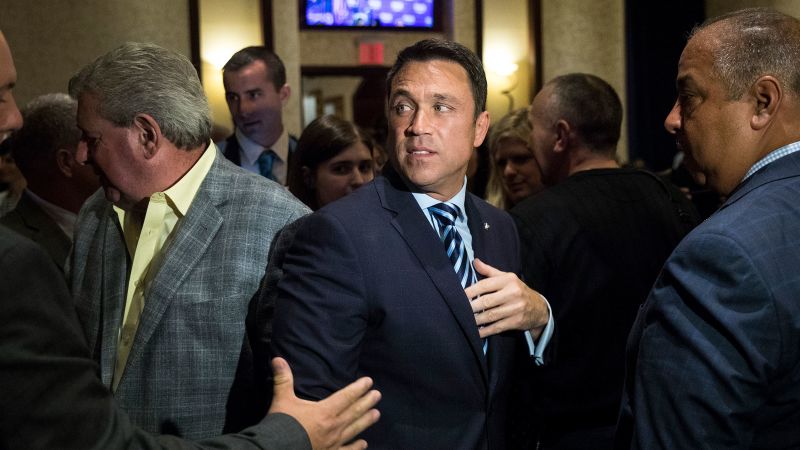On a notable Wednesday, President Donald Trump exercised his presidential pardon authority to grant clemency to a diverse group of individuals with various criminal convictions. This move highlights his controversial approach to utilizing the clemency power, which encompasses a wide range of crimes including public corruption and firearms offenses, as indicated by multiple official sources. Notably, this latest wave of pardons is part of a longer trajectory of clemency actions taken by Trump, who has frequently bypassed the standard procedures managed by the Department of Justice, often favoring individuals who are connected to his political circles.
Among the individuals who received clemency was Michael Grimm, a former New York congressman who had previously served seven months in prison for tax evasion approximately ten years prior. The news of Grimm’s pardon, which first came to light via Spectrum News 1, underscores the political connections that often influence the pardon process. In public memory, Grimm is not solely recognized for his conviction but also for a notable incident in January 2014, during which he threatened to physically harm a reporter who had questioned him about his campaign’s financial dealings, showcasing his contentious personality.
Grimm, who later took on a role as an on-air personality for Newsmax, has recently encountered personal challenges, surviving a serious horse-riding accident that left him badly injured. Beyond Grimm, the list of pardoned individuals included various figures whose cases exemplify different facets of criminal justice and the impact of the pardon system in the U.S. One such case is that of John G. Rowland, the former governor of Connecticut, who has faced legal troubles on two separate occasions. Additionally, the rapper Kentrell Gaulden, who is widely known by his stage name NBA YoungBoy, was also pardoned after a conviction in a federal gun crimes case.
Another noteworthy individual granted clemency is Kevin Eric Baisden, who overcame significant challenges including substance abuse issues that led to multiple nonviolent offenses in his youth. Having been sober for nearly fourteen years, Baisden seeks to move forward in his life, aspiring to graduate from law school. However, his criminal record continues to shadow his aspirations, potentially hindering his chances of future admission to state bars. The clemency granted to Mark Bashaw, a former U.S. Army officer, highlights issues related to compliance with COVID-19 protocols as he faced punishment from military courts for noncompliance.
Beyond the pardons, Trump’s actions also included the commutation of sentences for eight individuals. Among them, Larry Hoover, a notorious figure and co-founder of the Gangster Disciples gang in Chicago, received a commutation after serving six life sentences stemming from his 1997 conviction related to organized crime. As Hoover, now 74 years old, has pursued clemency under the First Step Act—legislation championed by Trump—the denial of his request in 2021 by U.S. District Judge Harry Leinenweber signified the complexities involved in the clemency process.
Hoover’s advocates rejoiced at the successful commutation, indicating a significant shift in his incarceration status, although his ongoing legal issues in Illinois remain unaddressed as he also faces a 200-year sentence for state murder convictions. In a more surprising turn, Trump extended clemency to reality television personalities Todd and Julie Chrisley, both sentenced to significant prison time for bank fraud and tax offenses, revealing the wide-ranging nature of Trump’s clemency decisions.
As the former president continues to review numerous applications for commutation, it is evident that this trend reflects not only his approach to justice but also the political implications that accompany clemency grants. With his new pardon attorney Ed Martin consulting on various cases, further clemency actions are anticipated in the near future. This escalation draws attention to the ongoing conversation about the disparity in the legal system and the potent power of presidential clemency.



